Although the majority, if not all pest infestations require the help of professional pest-control and pest-maintenance specialists, the average Pittsburgh home owner cam help prevent them by understanding the forces that influence insect and rodent behavior.
Outdoor temperatures have a huge impact on insects because they are cold blooded and cannot produce their own body heat.
They either migrate to warmth at the onset of winter or hibernate, burrowing in the ground to seek shelter.
It is is this instinct to find shelter that propels pests such as: spiders, cockroaches and rodents inside homes during the colder months of the year.

Warmer temperatures usually result in breeding that which will bring much emotional turmoil to Pittsburgh homeowners when the weather turns warm. Summer attracts other pests as well including: mosquitoes, ants, wasps, and other stinging insects that ruin picnics and outdoor games.
They may also invade YOUR Pittsburgh home looking for food.
The following is a list of insects that plague the Pittsburgh area during each season of the year.
Winter Pests
There are eight winter pests know to cause alarm. They are: ants; bees and wasps; bedbugs; cockroaches; mosquitos; ticks spiders and termites.
More on each follows below.
Ants
Most ant species overwinter outdoors within their colonies and go dormant.
When the temperatures drop in the fall, the ants will gorge themselves and fatten up.
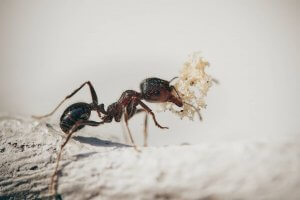
With the extra weight, they can last for extended periods of time without eating. Ants also seal up their colony when cold weather arrives.
The ants close up the entrances, huddle together and hide away to stay warm.
They generally do not migrate indoors during the winter, but if their colony is already inside a building, they will remain there and stay active if the temperatures are warm enough.
Bees And Wasps
When temperatures drop, and pollen sources become scarce, bees and wasps respond in a variety of ways depending on their species and life stage development. Honeybees return to the hive and huddle around the queen.
Mother Nature allows them to vibrate their wings, which serves to maintain a tolerable temperature within the hive.
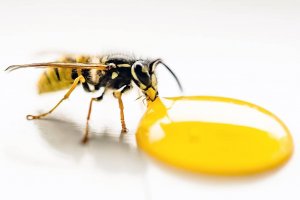
The colder it gets, the smaller and tighter their huddle becomes. They also gain body strength by consuming large amounts of honey.
Many wasps die off in winter, but mated females survive by seeking shelter. Survival is arduous due to predators and a scarcity of food sources.
An unusually mild winter can be a death sentence for a wasp species because the queen may emerge before food sources are available.
Bed Bugs
Bed bugs have an intense sensitivity to cold and can only live for a few days in below freezing climates.
They much prefer warm environments where their favorite hosts; namely humans, sleep in their beds.
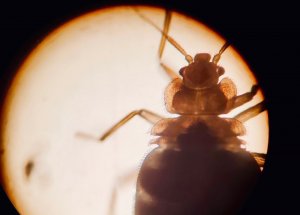
They can hide out for a long time without moving anywhere, and they can survive without food for as long as 400 days.
Homes not only provide comfortable bedrooms with easy prey, thick, heavy winter clothes and linens provides more places to hide. Holiday travel is a boon for bedbugs, as luggage, valises and bags provide perfect vehicles for transport. This is why the pest-control and pest-management strategies initiated by Pestco are so vital at this time of year.
Cockroaches
While roaches are extremely hardy pests that have been around since the dawn of time, they don’t respond well to the cold.
They are active all year round in warm, moist environments, such as kitchens, where they can find both food and humidity.
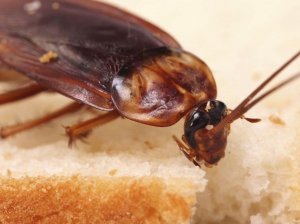
Once temperatures drop, there is often a surge of roach migrations into warmer places, such as private residences and commercial buildings, both of which can be effectively serviced by our teams at Pestco.
When roaches are caught in the cold, they are known to either group together for warmth or enter diapause, which slows metabolic rates, stops growth and limits reproduction.
A roach’s response to cold relates to both its age and species. In many instances, adults will die off while the nymphs enter diapause.
Different species react differently to extreme climes.
For example, german cockroaches seek food and warmth sources found in kitchens, while oriental varieties prefer the indoors, and unlike many other insects, reproduce during the winter.
They also tend to remain in moist areas such as drains or basements, and they are known to tolerate low temperatures better than other roach species.
American cockroaches generally prefer the outdoors, and brown-banded cockroaches prefer to live near heat-producing electric motors found in appliances and electronics.
They are known to seek out high places as well.
Mosquitos
Many Pittsburgh homeowners mistakenly believe that mosquitos disappear in winter, and there is no need to contact a pest control company to combat their growth until the summer. This is a myth.
Mosquito response to the cold very much depends upon the species.
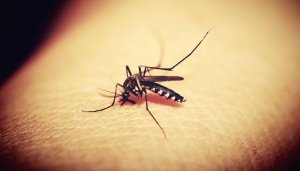
Generally, they prefer warmer temperatures and cope with the cold by laying eggs in the fall in standing water or or soil, where they suspend their growth with diapause.
These eggs hatch in the spring and insects reach adulthood and multiply rapidly.
Ticks
Ticks may be out of sight during the winter, but they have not gone away.
Studies indicate that only about 20% of the tick population die off and the others, depending on both species and life cycle stage, get through the colder months either via diaphase or parasitically, by latching onto a host.
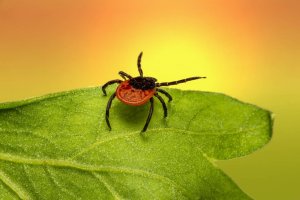
A tick’s movement is totally dependent on its environment.
In woody or bushy areas where they tend to populate, ticks hide in leaf litter. Blankets of snow serve as insulators for dormant species by maintaining constant temperatures, and in the case of soft shell ticks, survival is contingent upon staying under ground in burrows or dens.
Spiders
Although most spider species do not migrate indoors when seeking warmth and shelter, our pest-control and pest-maintenance experts often find them there.
Reasons for this can concern a female laying her eggs close to the home or spiders following bugs that are attracted to the light indoors.

It is also possible that a male spider may enter a home after traveling farther than usual seeking a mate.
Outdoor spider species seek shelter in stacks of leaves or wood.
During diapause, they endure a hardening process in which their bodies create an anti-freeze compound not unlike that which is used in automobiles.
This serves to lower the temperatures at which they freeze and helps them survive extreme climes.
Termites
Termites do not hibernate. Subterranean termites will remain outdoors, but often dig deeper into the soil, past the frost line, to keep warm. Snow provides additional cover and warmth.
The colony waits out winter and suspends egg production.
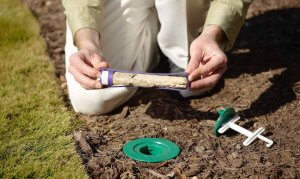
If the winter lasts longer than usual, or if enough snow does not fall, the colony can die out. Many termite species can perform business ‘as usual” as long as they can find warmth and shelter for the season inside the walls or underneath a structure.
Spring And Summer Pests
The warm temperatures in early spring coax insects out of hiding from their winter habitats.
The mix of warmth and moisture draws out swarms of unwanted pests into Pittsburgh homes.
In addition to spiders, ants and termites, spring insect pests also include: cluster flies, stinging insects and earwigs that burrow underground in the winter and emerge to lay their eggs in the spiring time.
Summer brings its own parade of critters to Pittsburgh and Western Pennsylvania.
These include: mosquitoes, black, deer and horse flies, ticks, biting chiggers, yellow jackets, wasps and hornets and both pavement and house ants.
Our pest specialists are extremely busy at this time of year!
Autumn is known for its own variety of insect pests.
Black and red box elder bugs swarm near homes during the fall, and if they gain ingress,.they stain clothing, curtains, fabrics and walls with their excrement.
Aggressive yellow jackets proliferate during the autumn months, as they have had all summer to increase their numbers.
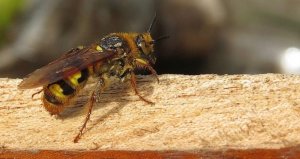
Although lady bugs are beneficial garden pests, if they get inside a home, they emit a yellow excretion that stains fabrics and upholstery and in great numbers, really stink up a home.
Homeowners should seal up all cracks and openings to prevent rodents from seeking warmth inside once the fall arrives and temperatures begin to drop.
Stink bugs will also seek entry into residences, and they too produce a highly unpleasant odor.
The Friendliest Most Effective Pittsburgh Pest Control Services
It all began with the American dream of a Lithuanian immigrant named Milton Zlotnik, who first learned about pest control while serving in the United States Army during the turbulent years of World War II.
In 1948, he purchased the first commercial air freshener distributorship from his Brother-in-law, Bob Surloff, who invented the world’s first fan-operated air freshener dispenser, which he named Air Scent.
There, while working on accounts, Milton became aware that additional services besides air fresheners might fit in well with standard company operations.
Soon thereafter, he established a commercial pest company, which became known as Pestco Professional Services.

The burgeoning enterprise thus began its long and arduous climb to prominence throughout Greater Pittsburgh, Western PA counties and surrounding tristate areas.
The focus of Pestco has remained the same over the years; namely, to provide experienced, responsive and uncompromising service to all of its customers.
Our friendly and supportive staff help all customers through the process of dealing with a pest infestation, which can be both harrowing and time consuming.

We are equipped with the most cutting edge and cost-effective pest-control strategies for commercial, industrial and residential spaces as well.
Our highly trained and knowledgeable technicians understand that each infestation presents its own set of problems and challenges, and they are prepared to meet all of them head-on.
All are licensed by the Pennsylvania Department of Agriculture and attend monthly workshops to keep them always one step ahead of both insect and rodent behavior.
In Conclusion
Give our teams at Pestco a call and begin a regimen that will keep your facility and/or home free of pest infestations all year long!
Photo Credits: Pixabay and Pestco
 Over 300 Reviews
Over 300 Reviews 